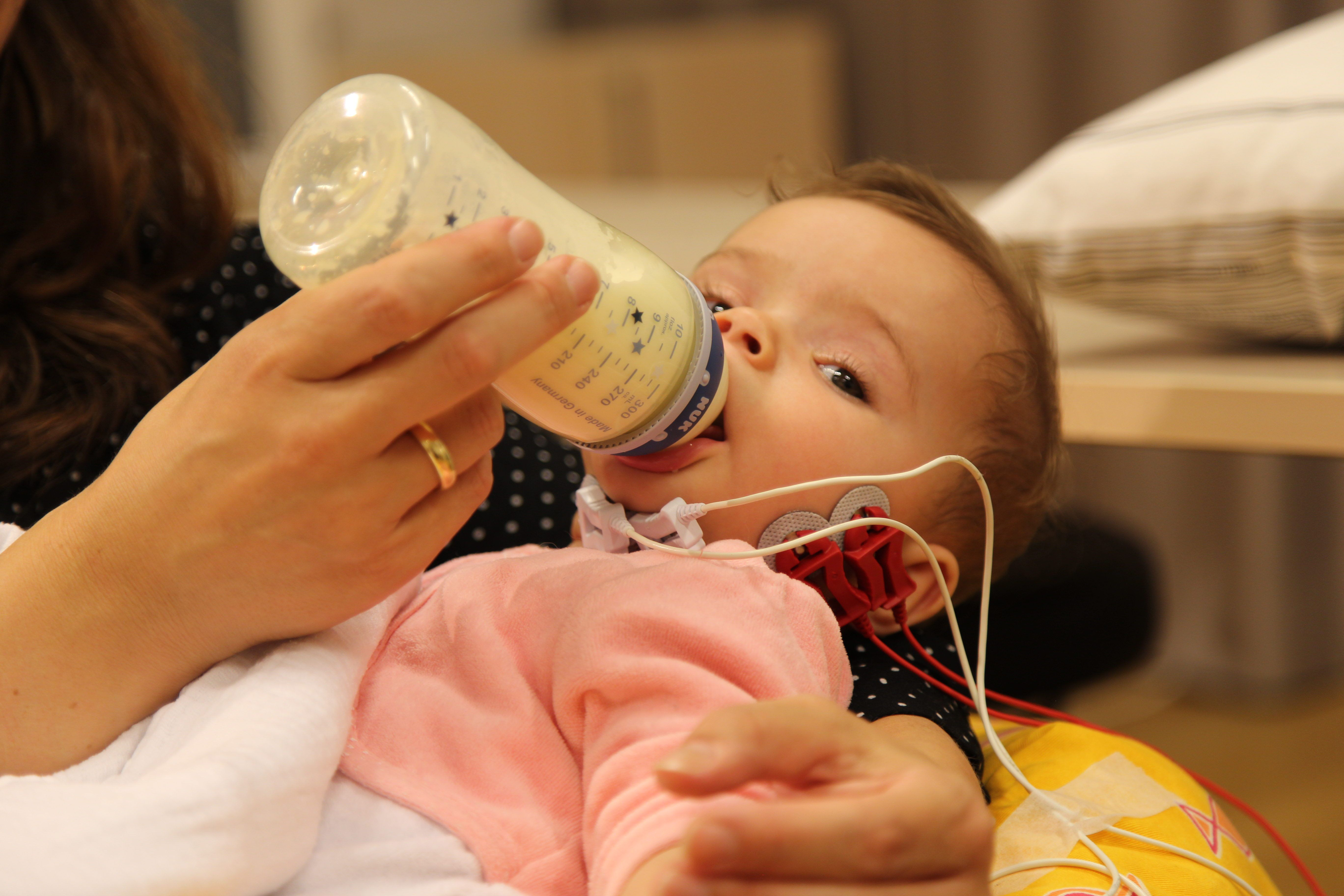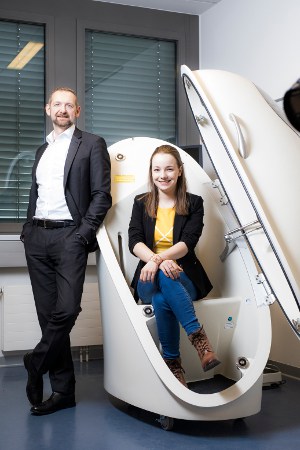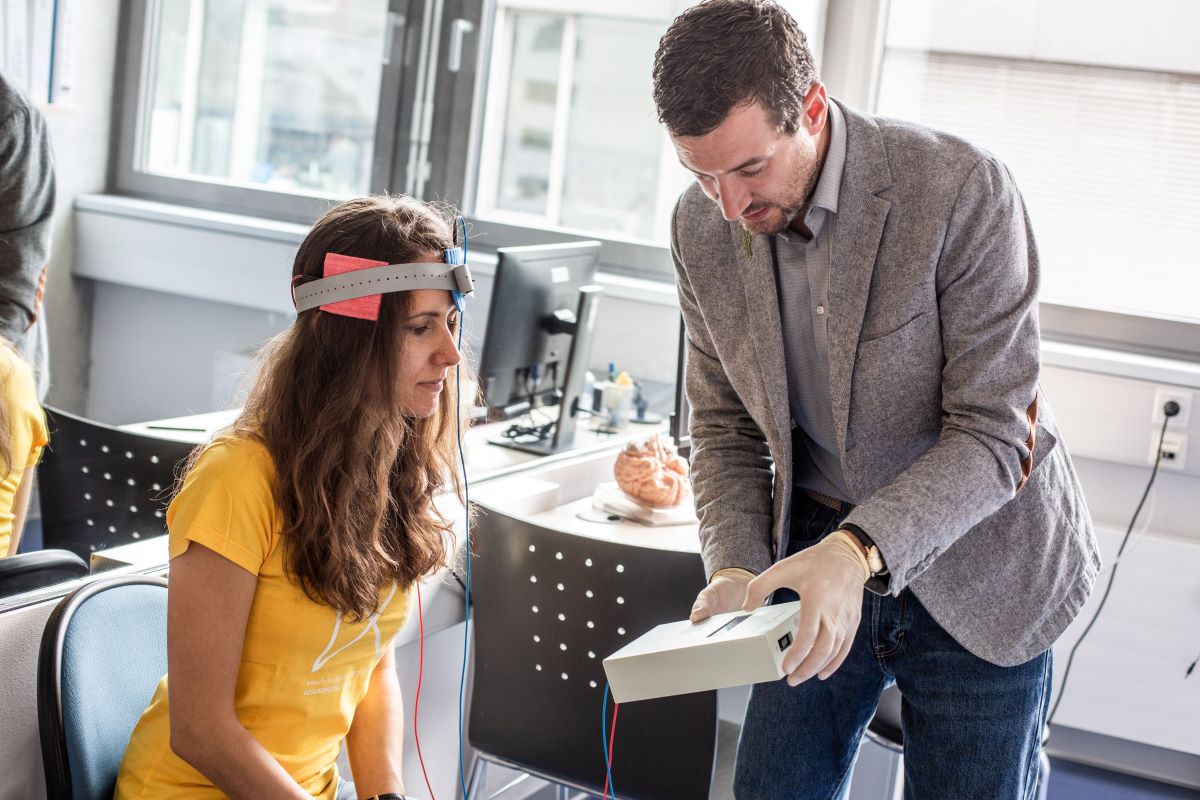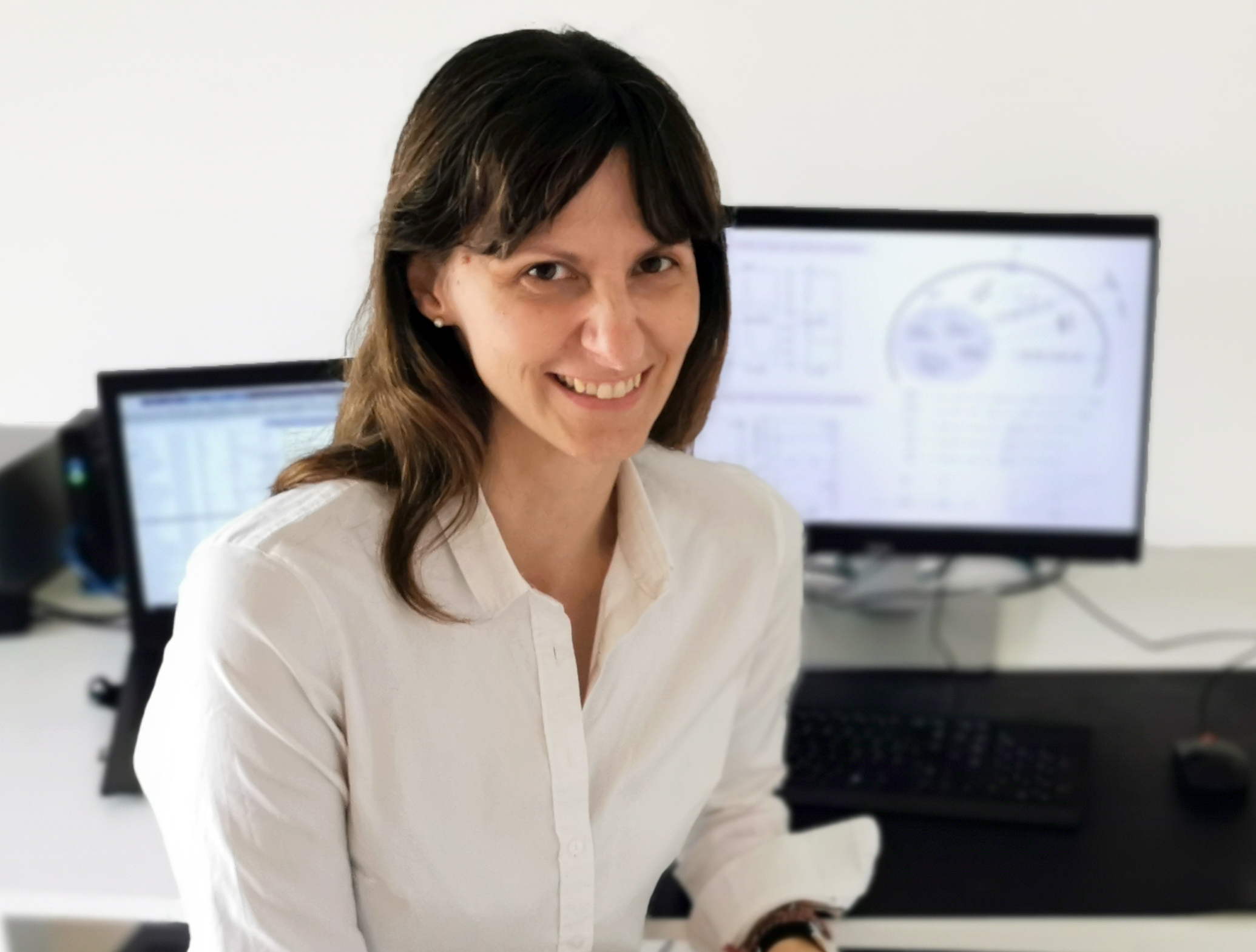Does breast feeding, bottle feeding and/or the mother’s diet have any influence on the subsequent development of obesity in children? Katharina helped researchers to find an answer to this question even before being born.
Research with little Katharina
FH JOANNEUM, 17. May 2018
The research centre explores the dietary habits of babies in relation to subsequent development of obesity. This should make it possible to identify factors relevant to obesity. (© FH JOANNEUM)
The first measurements were taken when Katharina was still in her mother’s womb: her mum donated a strand of her own hair, her height and weight were measured and she completed a questionnaire on her eating habits. When Katharina was born, she was also examined by the researchers in a so-called Pea Pod – a device which measures body composition. It might at first sound unusual but it is completely harmless for babies. The chamber is heated, a mobile swings to and fro in the baby’s sight and the voices of the mother and others can be clearly heard. If Katharina was hungry during the examinations, her mother would feed her. Approx. 20 millilitres of the mother’s milk were also donated to the study at each visit.
Over time, the appointments became routine – sometimes measurements were taken and Katharina and her mum were filmed while breastfeeding to identify any signs of satiety. There were always midwives and other experts in attendance to answer questions both about the study and also general questions relating to caring for newborns and infants.
The project at the Josef Ressel Centre
All of this takes place and has taken place at the research centre for research into predisposition to perinatal metabolic programming of obesity, where Katharina, her mother and other participants have been studied. The name is complicated but the research focuses on one clear question: What is the relationship between nutrition in early childhood and obesity? The focus is on investigating the influence of the quality and volume of food on the predisposition to obesity during the first 1000 days, i.e. up to the child’s second birthday. Children who are breastfed exclusively are compared with children fed exclusively on ready-made formula. There are still places open for participants. For the full details, see the FH JOANNEUM website.

Christopher Mayr, Country Manager at Milupa ELN Austria, with Midwifery student Elsa Ehrenreich. (© FH JOANNEUM / Marija Kanizaj)

In addition to the Christian Doppler Research Association, which is supporting the Josef Ressel Centre as a five year programme of excellence, an industrial partner of FH JOANNEUM is also involved in the research: Milupa Austria. Christopher Mayr, Country Manager, Milupa ELN Austria, describes their commitment as follows: “We aim to better understand the factors which influence nutrition over the first 1000 days of life. FH JOANNEUM is providing unique expertise by drawing on several disciplines along with its exceptional facilities and highly motivated team. Combined with our own expertise, we are convinced that the Josef Ressel Centre will come up with some key findings for future product development”.










